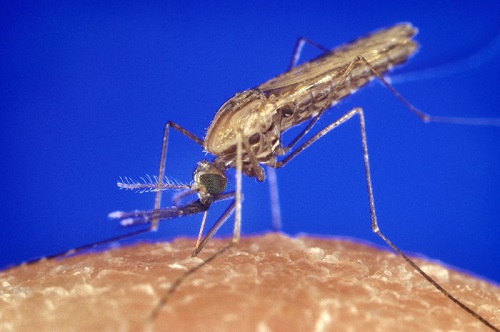
A new genetic method may be highly promising in wiping out malaria from the world, researchers reveal. The new technique works by genetically modifying mosquitoes to produce only male offspring.
Malaria is a disease that spreads through the bite of mosquitoes infected by a parasite known as plasmodium. It is mainly transmitted by female mosquitoes called Anopheles gambiae. After reaching the human body, the parasites get multiplied in the liver and infect red blood cells, according to the World Health Organization (WHO).
It takes at least 10 to 15 days before the patient starts getting symptoms like headache, vomiting and fever. When left untreated, the disease can interrupt blood supply to important organs in the body, and can claim life.
During the experiment, researchers inserted an enzyme called I-PpoI into Anopheles gambiae mosquitoes.
In normal cases, the sperm carries equal number of X and Y chromosomes. In the study, the enzyme distorted sex ratio of the mosquitoes, by cutting the DNA of X chromosome during sperm production. The sperm produced by the genetically modified mosquitoes carried only Y chromosome and not X. The result was more production of the male offspring.
Interestingly, in 95 percent of the cases, the new strain of mosquitoes produced only males.
As part of the next experiment, the genetically modified mosquitoes were kept along with wild-type mosquitos in five cages. In majority of the cases, i.e. in four cages, the wild –type mosquitoes were wiped out completely within six generations.
"What is most promising about our results is that they are self-sustaining. Once modified mosquitoes are introduced, males will start to produce mainly sons, and their sons will do the same, so essentially the mosquitoes carry out the work for us," lead researchers Dr Nikolai Windbichler, from the Department of Life Sciences at Imperial College London, said in a news release.
Researchers hoped that using the same method, they can wipe out the malaria causing mosquitoes from earth. "The research is still in its early days, but I am really hopeful that this new approach could ultimately lead to a cheap and effective way to eliminate malaria from entire regions. Our goal is to enable people to live freely without the threat of this deadly disease", Dr Roberto Galizi from the Department of Life Sciences at Imperial College London, said.
Findings of the study, reported in the journal Nature Communications, come at a time when the deadly disease claims thousands of lives every year. According to a WHO estimate, about 207 million cases of malaria were reported in 2012 and the disease claimed nearly 627,000 lives.

















